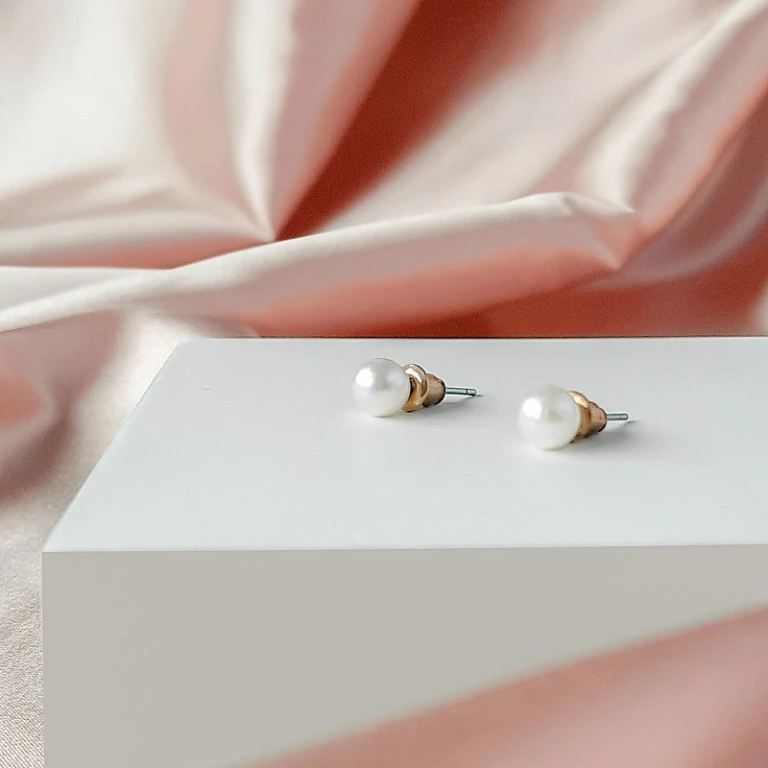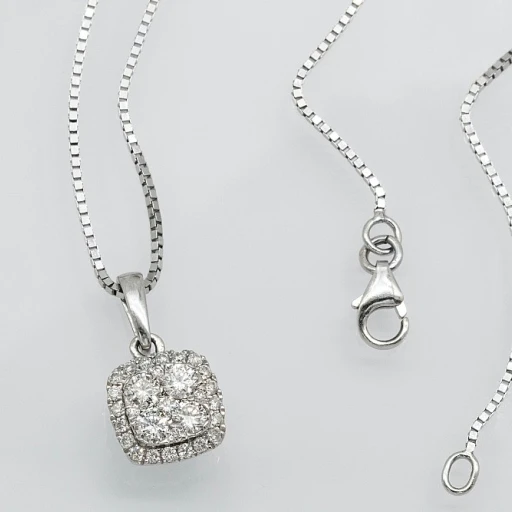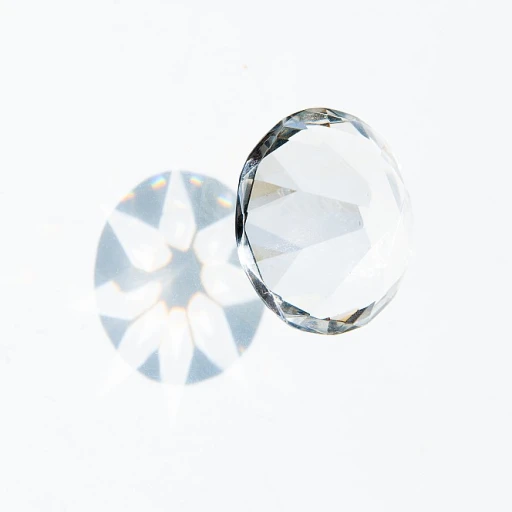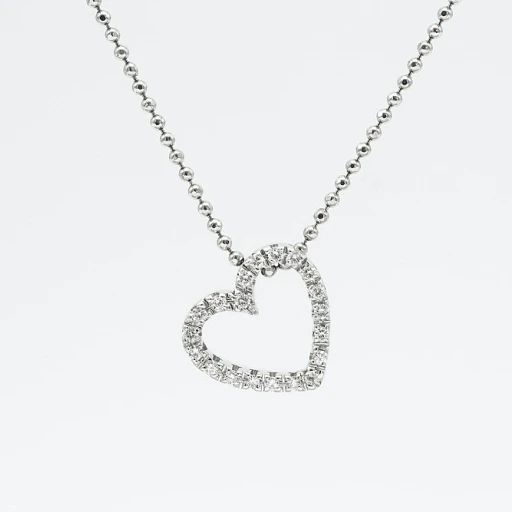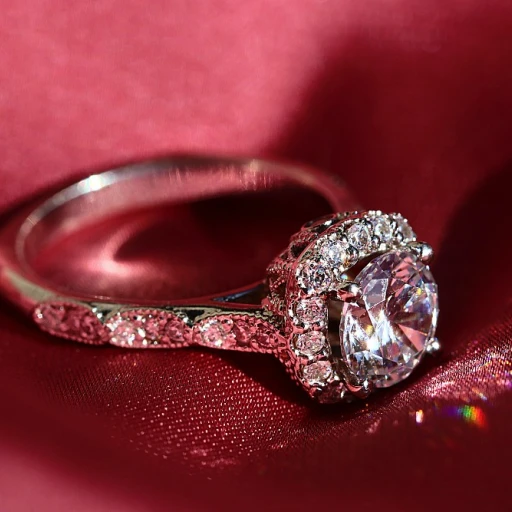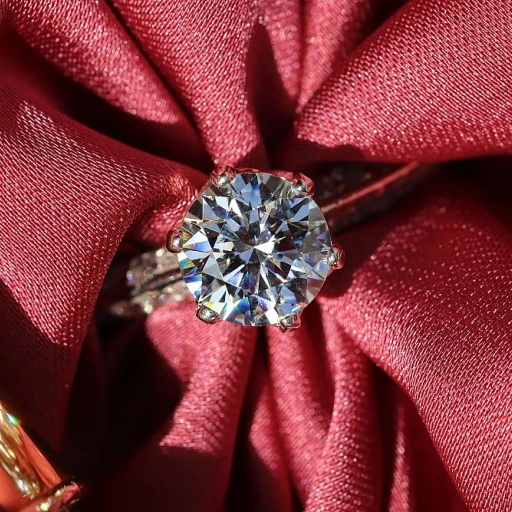L'Emerging Market for Ethically Sourced Jewelry: A Golden Opportunity?
The Rising Demand for Sustainability in Fine Jewelry
The fine jewelry market is buzzing with a profound transformation that's reshaping consumer patterns: the increasing demand for ethically sourced materials. In an era where approximately 66% of global consumers are willing to pay more for sustainable goods, the allure of ethical jewelry is stronger than ever. This burgeoning niche is not just a fleeting trend but represents a golden opportunity for fine jewelry owners looking to align with the values of a conscientious clientele. By prioritizing ethical sourcing, brands can seize a competitive edge in a market where luxury and responsibility are becoming synonymous.
Surfing the Wave: Ethical Luxury as a Market Differentiator
As a fine jewelry entrepreneur, understanding the seismic shift towards ethically sourced jewelry isn't just crucial—it's a strategic imperative. With millennials and Gen Z now forming the backbone of the consumer market, their preferences have heralded a new age of luxury. A staggering 73% of these younger consumers are prepared to spend more on a product if it comes from a sustainable brand. Fine jewelry pieces that come with a story of ethical provenance and artisanal craftsmanship are not just beautiful; they're a statement of personal values and a badge of honor for consumers.
Capitalizing on Ethical Elegance: Combining Affluence with Influence
Delving deeper into the narrative of ethical sourcing is more than a marketing strategy, it's a blueprint for sustainability that offers a compelling investment narrative. Fine jewelry owners who are keen to capitalize on this trend should recognize that it's not just about the jewelry itself—it's about the story it tells and the impact it makes. For instance, diamonds that are meticulously sourced from conflict-free zones possess an invaluable appeal, one that's reflected not only in their scintillating luster but also in their growing resale value. Harnessing ethical sourcing can transform your inventory from mere ornaments to coveted pieces of responsible luxury.
To explore the potential of ethically sourced gemstones like diamonds and rubies and their impact on global markets, you may refer to where to bank globally on diamonds or rubies as a keystone in your investment journey.
Les Financial Implications of Ethical Sourcing on Jewelry Resale Value
Impact of Ethical Sourcing on Long-term Value
When considering ethical sourcing in the fine jewelry industry, one cannot overlook its influence on the resale value of precious pieces. As consumers become increasingly conscious of their purchases, 'ethical jewelry' and 'sustainable fine jewelry' have grown into powerful SEO keywords. Recent statistics reveal that over 70% of millennials are willing to spend more on brands that support causes they care about (Reference: Cone Communications CSR Study). This trend significantly affects the investment potential of ethically-sourced fine jewelry collections. Such pieces often command higher prices in the secondary market, as documented by the latest auction results where ethically certified diamonds had a premium of approximately 15% over their conventional counterparts.
Enhancing Resale Attractiveness Through Provenance
Provenance has become a buzzword among discerning collectors and investors, and it's no wonder that 'provenance' is among the top-ranking SEO terms in luxury resale markets. Provenance not only narrates the origins of a gemstone but also assures its ethical lineage. According to the Gemological Institute of America (GIA), documentation of a gemstone's ethical journey can increase its resale value by up to 20%. This transparency is pivotal, as noted by an industry expert: "Buyers are willing to invest more when they are assured that the gem's past is as brilliant as its facets."
Leveraging Certifications for Enhanced Market Value
Certifications from respected bodies such as the Responsible Jewellery Council (RJC) and the Fairtrade Gold Standards are becoming increasingly paramount in the fine jewelry market. These certifications act as a stamp of ethical approval, boosting both consumer confidence and the market value of the pieces bearing them. For instance, fine jewelry adorned with Fairtrade gold can see an increase in market value by 10-20%, as per industry analyses. Quotes from leading industry reports underscore the importance, with one stating, "Certification acts as a baseline 'currency' in the ethical jewelry marketplace."
Scaling Premium Prices for Ethical Assurance
Owners of fine jewelry who invest in ethical sourcing can achieve premium pricing, an evident trend in today's luxury markets. The allure of ethical assurance allows for a markup that reflects the meticulous care and responsible sourcing behind each piece. A study in the Journal of Business Ethics found that consumers are willing to pay, on average, 11% more for jewelry that's ethically certified. This is not just a statistical claim; it's an endorsement of the morality that modern consumers seek in their luxury purchases, turning ethical sourcing into a strategic financial decision.
- Consumer-Driven Demand Shift: 73% willing to pay more for transparency (Source: Forbes).
- Certification Impact: Up to 20% higher market value with RJC or Fairtrade certification (Source: RJC).
- Investment Wisdom: Premium prices on ethically sourced diamonds provide a hedge against market fluctuations (Source: The Economist).
Building Trust and Transparency: How Ethical Sourcing Enhances Brand Image
The Bedrock of Fine Jewelry: Trust and Transparency
In the dazzling world of fine jewelry, ethical sourcing stands as the beacon of trust and transparency. A report by the Global Diamond Industry noted that 73% of millennials are willing to spend more on a product if it comes from a sustainable brand. This consumer drive has not spared the fine jewelry market, pushing for a surge in demand for jewelry pieces with a clear, ethical provenance. Adopting ethical sourcing isn't just a moral choice; it's a strategic one that can significantly enhance your brand's image in the eyes of discerning customers.
How you communicate this commitment to ethics can be a powerful differentiator. Consider Tiffany & Co., a brand synonymous with luxury and responsibility, pledging to provide full transparency for every newly sourced, individually registered diamond. This type of dedicated transparency can forge a deeper connection with your clientele, leading to increased brand loyalty and potential word-of-mouth marketing. Crafting a narrative around your ethical practices creates a story that customers are proud to be a part of.
The Ripple Effect of Ethical Practices on Consumer Perception
The impact of ethical sourcing extends far beyond the product itself. According to a study by Nielsen, 66% of global consumers are willing to pay more for sustainable goods. In the fine jewelry market, this sentiment translates to a heightened valuation of pieces that are ethically sourced. By integrating ethical sourcing, you're not only making an investment in the well-being of the communities and environments affected by your business but are also investing in the perceived value of your brand.
Firms that embed ethical sourcing into their business model often observe an elevation in their reputation, leading to a competitive edge in the marketplace. As a fine jewelry owner, you can tap into this compelling marketing facet to craft luxury narratives that resonate with eco-conscious consumers. Showcasing the journey of your jewelry from mine to market not only provides provenance but also adds an irreplaceable layer of emotional value to each piece.
Strategizing Ethical Sourcing for Competitive Advantage
What steps can you, as a fine jewelry owner, take to align your brand with ethical sourcing practices? It begins with meticulous supplier selection, ensuring those you work with adhere to internationally recognized standards, such as the Kimberly Process for conflict-free diamonds. Next, integrate certifications into your storytelling to solidify your stance on ethics. These certifications serve as quantifiable proof of your commitment and can be included in marketing materials to enhance customer trust.
Furthermore, creating an inventory of ethically sourced jewelry can set you apart. Highlighting the extra care in creating such pieces can catalyze customer curiosity and appreciation. For instance, when discussing the transformation of an old piece into something modern and stylish, establishing its ethical credentials can enhance its allure. For insights into this, you might find our article on how to revitalize your heirloom jewelry a helpful resource.
Investing in Ethical Sourcing: A Step-by-Step Guide for Fine Jewelry Owners
A Strategic Path to Ethical Jewellery Sourcing
As an owner of fine jewelry, making the shift towards ethical sourcing is both a moral and strategic business choice. With an increasing number of consumers prioritizing corporate responsibility and sustainability, the decision to invest in ethical sourcing can significantly enhance your brand's appeal. Statistics show that 66% of global consumers are willing to spend more on a product if it comes from a sustainable brand (Nielsen). By embedding ethical practices into your business model, you cater to this growing market segment and set the stage for long-term growth.
Establishing Connections with Ethical Suppliers
Begin your journey by identifying and partnering with suppliers who share your values on responsible sourcing. Research and vet potential suppliers by examining their sourcing practices and ensuring they adhere to international guidelines like the Kimberley Process. The World Jewellery Confederation (CIBJO) reports that transparency in supply chains is a key factor in upholding consumer confidence. Forge relationships with these suppliers to ensure the quality and integrity of your pieces, creating a fine jewelry collection synonymous with trust and ethical standards.
Implementing Certification and Compliance
Adopting certification systems such as the Responsible Jewellery Council (RJC) certification can attest to your ethical sourcing commitment. Fine jewelry owners can showcase this certification to customers as a symbol of adherence to ethical practices. According to the RJC, over 1,000 members have seen improvements in consumer trust as a result of certification. This move not only attracts conscientious buyers but also commands a higher resale value, echoing findings from previous sections on financial implications.
Utilizing Technology for Traceability
Embrace innovative technologies such as blockchain to improve supply chain transparency. A Forbes report indicates a growing adoption of blockchain in the jewelry industry, enhancing traceability and provenance documentation. Customers can verify the origins of their jewelry, adding a layer of authenticity and reassurance that supports premium pricing and positions your offerings at the forefront of the ethical fine jewelry market.
Marketing Your Ethical Stance
Develop a robust marketing strategy that communicates your ethical sourcing policies and initiatives. Create compelling narratives around each piece's origin, the artisans who crafted them, and the positive social and environmental impact of the purchase. According to a 2020 Edelman Trust Barometer Report, 81% of consumers say that trust in a brand is a deciding factor in their buying decision, underlining the significance of brand image reinforced by ethical practices.
Engaging with Your Audience
Transparency is not only about showing the source of your materials but also about open communication with your customers. Engage with them through social media, open forums, and educational content to discuss and advocate for ethical sourcing in the jewelry trade. By encouraging dialogue, you create a community of brand advocates who value ethical assurance as much as aesthetic and material quality. And as we've seen earlier, trust and transparency are indispensable components in strengthening brand image and loyalty among discerning jewelry lovers.
